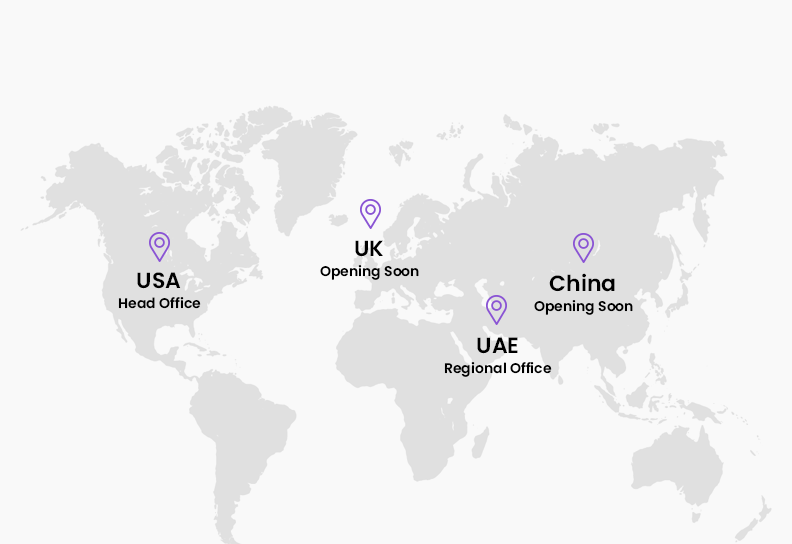In today’s fast-paced digital world, having a strong online presence is crucial for the success of any business. Hence, why the demand for Ecommerce development has grown as well. With the increasing popularity of online shopping, having an effective eCommerce platform has become a necessity. Choosing the right eCommerce platform can be overwhelming, as there are many options available, each with its unique features, advantages, and disadvantages. In this comprehensive guide, we’ll take a closer look at some of the most popular eCommerce platforms and help you choose the one that’s right for your business. Whether you’re a small business owner or an enterprise-level company, this guide will provide you with the information you need to make an informed decision and take your online business to the next level.
Shopify
Shopify is amongst cloud-based eCommerce platforms that allow businesses to create and manage online stores. It offers an intuitive and user-friendly interface, making it easy to set up and launch an online store quickly. Shopify offers a wide range of templates and themes, making it easy to customize the appearance of your store. It also has a robust app store with over 4,000 apps that allow you to add additional features and functionality to your online store.
One of the biggest advantages of Shopify is its ease of use. You don’t need any technical knowledge to set up and manage your store. Shopify offers excellent customer support, with 24/7 live chat, email, and phone support. However, Shopify’s pricing can be quite high, with monthly plans ranging from $29 to $299.
WooCommerce
WooCommerce is an open-source eCommerce platform built on top of WordPress. It’s a popular choice for businesses that already have a WordPress website. WooCommerce offers a wide range of themes and templates, making it easy to customize the appearance of your online store.
One of the biggest advantages of WooCommerce is its flexibility. It’s an open-source platform, meaning you can modify and customize the code to meet your specific needs. WooCommerce is also free to use, but you’ll need to pay for hosting, themes, and plugins.
Magento
Magento is an open-source eCommerce platform that offers advanced features and functionality. It’s a popular choice for large and enterprise-level businesses. Magento offers a wide range of customization options, allowing you to create a unique online store that meets your specific needs.
One of the biggest advantages of Magento is its scalability. It can handle large product catalogs and high traffic volumes, making it an excellent choice for businesses with high-volume sales. Magento also offers excellent SEO features, making it easy to optimize your online store for search engines. However, Magento can be complex to set up and manage, requiring technical knowledge and expertise.
BigCommerce
BigCommerce is amongst cloud-based eCommerce platforms that offer a wide range of features and functionality. It’s a popular choice for businesses that want an all-in-one solution for their online store. BigCommerce offers a wide range of templates and themes, making it easy to customize the appearance of your online store. It also offers a robust app store with over 600 apps that allow you to add additional features and functionality to your online store.
One of the biggest advantages of BigCommerce is its scalability. It can handle large product catalogs and high traffic volumes, making it an excellent choice for businesses with high-volume sales. BigCommerce also offers excellent SEO features, making it easy to optimize your online store for search engines. However, BigCommerce can be quite expensive, with monthly plans ranging from $29.95 to $299.95.
Squarespace
Squarespace is a website builder that offers eCommerce functionality. It’s a popular choice for businesses that want a visually stunning online store. Squarespace offers a wide range of templates and themes, making it easy to create a beautiful online store. It also offers a wide range of features and functionality, including inventory management, order tracking, and customer management.
One of the biggest advantages of Squarespace is its ease of use. It’s an intuitive platform that doesn’t require any technical knowledge to set up and manage your online store. Squarespace also offers excellent customer support, with 24/7 live chat and email support. However, Squarespace’s eCommerce functionality is limited compared to other e-commerce platform examples. It’s suitable for small businesses with a limited product catalog.
Comparison Chart:
Here’s a comparison chart of the popular eCommerce platforms to help you choose the right one for your business:
| Platform | Ease of Use | Customization | Scalability | Pricing |
| Shopify | Very easy | Limited | Limited | $29 – $299 |
| WooCommerce | Easy | High | Limited | Free |
| Magento | Complex | High | High | Free |
| BigCommerce | Easy | High | High | $29.95-$299.95 |
| Squarespace | Very easy | Limited | Limited | $18 – $40 |
Conclusion
Selecting the right eCommerce platforms can make a significant impact on the success of your online business. Each platform has its unique features, advantages, and disadvantages. Shopify is a great choice for businesses looking for an easy-to-use platform. WooCommerce is ideal for businesses that already have a WordPress website. Magento is suitable for large businesses with high-volume sales. BigCommerce is an all-in-one solution that offers scalability and excellent SEO features. Squarespace is suitable for small businesses that want a visually stunning online store.
Before choosing from a selection of eCommerce platforms, consider your business needs, product catalog, budget, and technical knowledge. Choose the platform that aligns with your business goals and objectives. With the right eCommerce platform, you can create a successful online store and reach your target audience. Whether it’s ecommerce website development, ecommerce replatforming, or help with choosing an Ecommerce platform, let the experts handle it! Get in touch to learn more about our exclusive packages!









